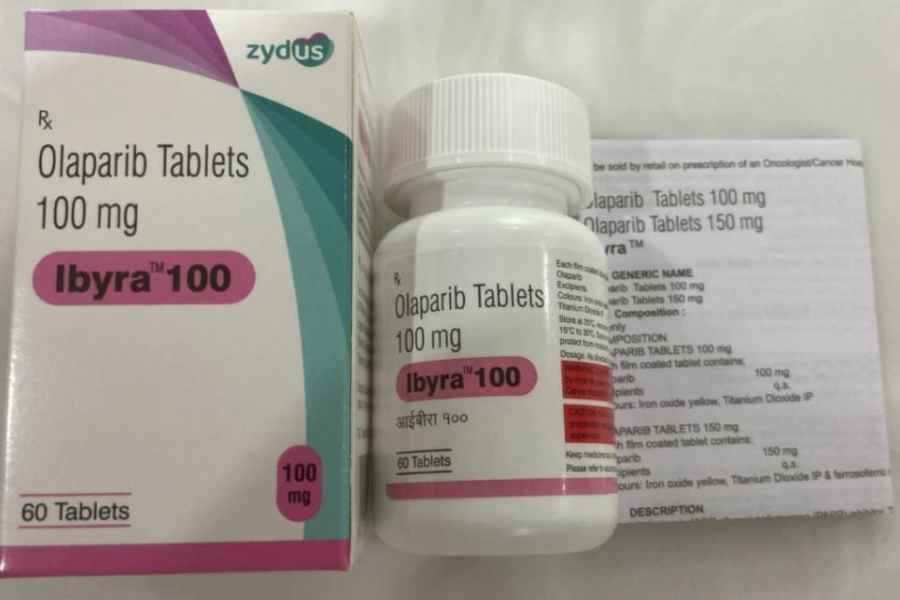India’s Zydus Lifesciences on Wednesday announced its launch of a generic version of an anti-cancer medicine called olaparib that the company said would be available to patients at a fraction of the cost of the original innovator molecule.
The cost of treatment for a year with the generic olaparib has been capped at Rs 3 lakh compared to around Rs 72 lakh for the drug from the innovator, Zydus said in a media release. Olaparib is prescribed for subsets of patients with breast, ovarian, prostate or pancreatic cancers.
Among an estimated 1.4 million newly diagnosed cancer patients in India each year, nearly 275,000 patients are diagnosed with breast, ovarian, prostate or pancreatic cancers, the company said citing a global cancer database.
Olaparib will target specific genetic mutations prevalent in certain types of cancers and facilitate treatment tailored to the type of disease, the company said.
India’s drug regulatory authority had approved the import and marketing of olaparib by AstraZeneca — the innovator company — nearly five years ago. But patients’ rights advocates in the country have long argued for generic versions citing the high cost of the innovator molecule.
“Olaparib has been among the most expensive anti-cancer drugs in the country,” said Chetali Rao, a member of the Third World Network, a non-government think-tank that engages with healthcare and other issues that impact developing countries.
“The generic versions will enhance patients’ access to this medicine,” Rao told The Telegraph.
Olaparib is a patented molecule in India, the patents held by Kudos Pharmaceuticals, a company acquired by AstraZeneca in 2005.
But, Rao said, one patent expired in 2021, while the other patent expired on Tuesday (March 12, 2024).
The Hyderabad-based Natco Pharma was the first company in India to launch a generic version of olaparib last year. The Natco product was also available at a much lower cost than the innovator medicine, Rao said.
Zydus also said on Wednesday that it has collaborated with a company called MedGenome for diagnostic testing of cancer patients to identify those eligible for treatment with olaparib.
“The right diagnosis and the right treatment early on can give patients a big advantage in the fight against cancers,” Zydus managing director Sharvil Patel said in a media release.
Patients’ rights advocates say the case of olaparib illustrates how patents can impact access to medicines.
“We need institutional mechanisms in India to assess how patents are affecting access to medicines,” said K. Gopakumar, a lawyer engaged with access to medicine issues and a member of the Third World Network. “There are provisions in Indian patent laws the government can invoke to enhance access to medicines.”
Olaparib is prescribed to patients with certain types of cancers at specific points during the treatment. For instance, it is used after surgery in the treatment of certain high-risk early-stage breast cancer that has been treated with chemotherapy before or after surgery and for metastatic breast cancer that has been treated with chemotherapy before or after the cancer has spread.
In certain ovarian cancers, olaparib is used as a maintenance therapy in patients who have had a complete or partial response to platinum chemotherapy.










